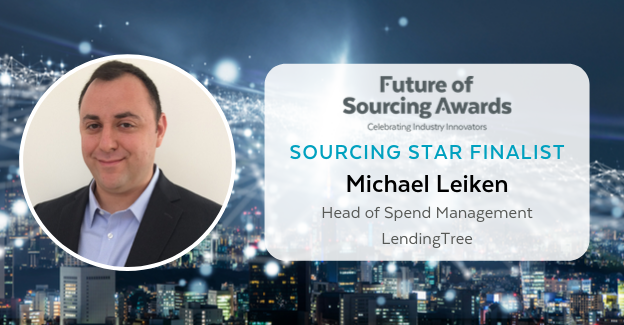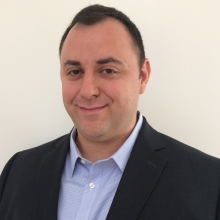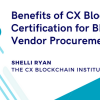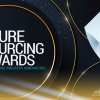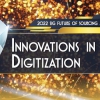How did you get into this field – was it purposeful or by accident?
10,000% by accident! I worked with the football team at the University of Miami—GO CANES!—and, as a senior, the offensive staff knew I was looking for a job opportunity.
One day, Coach Kehoe tells me he “knows a guy that does consulting for this place that is looking to hire a new guy.” I took the introduction and found myself in a meeting room a couple weeks later listening to this person talking about straws, cutlery and can liners. I tried to not seem disinterested or disrespectful but couldn’t stop thinking to myself: how did I get from investment banking to THIS?!?!
Long story short, that was my introduction to the world of purchasing—handling the packaging category for a well-known QSR brand. And the rest, as they say, is history!
In what ways do you feel your professional contributions have influenced or transformed the industry? (This could be a new approach or methodology, the application of an existing technology in a completely new way, significant thought leadership or even a career of inspiring others.)
This is a tough question! I’ve never really looked at myself in that way, which makes it difficult to articulate my impact upon others and the industry in a broad sense. I’ve worked in several industries, managed a litany of commodities and have faced varying challenges along the way.
One consistency that I’d highlight is the success I’ve had at effecting change in every company along the way. And although it may not have seemed novel to me, perhaps a core basis for my success in this area is that my approach was different. Most people cringe or immediately brace for something negative at the mere thought of change, but I see opportunity and get a rush of excitement. In general, I believe the focus should always be (primarily) on the customers/stakeholders involved in the process. They need to clearly understand “why” the change will be better for them and “how” they’ll help make it happen. There is, naturally, a sensitivity factor here, but the key is to think from their lens and—despite knowing something may be “good for the company”—truly empathize with their situation and address concerns while highlighting the forthcoming value.
It also needs to be a “we” initiative—not “I” and “you,” where this is to drive a win for “us” together. Otherwise, you’ll create a disconnect and promote a defensive response.
Some examples of effecting significant change have been:
- Driving a (new) redistribution project, which changed the strategy and management of dry product in the supply chain moving forward.
- Restructuring and negotiating a deal on behalf of multiple media consortium partners where commitment, allocation and real savings were realized for the first time…all without corporate mandate across over 100 participating properties.
- Playing a key role in defining processes, roles and responsibilities, developing and delivering training, etc., to stand up a centralized buying function.
- Establishing a procurement function from scratch at a public company that, since I’ve joined, has made eight acquisitions. Projects managed and contracts negotiated have increased from about 60 in year one (2016) to 130 in year two, 400 in year three and trending to more than 600 in 2019. Demonstrating the value of the new function, designing a process, gaining enterprise-wide adoption, implementing technology and building a (lean) team that saves millions annually—all to support scale—have been both challenging and rewarding.
In your opinion, what are the biggest challenges facing the industry today and what should be done to solve them?
The biggest challenges facing the industry today are, ironically, similar to what they’ve been for my entire career. Top of my list are gaining leadership support, buy-in from the business and becoming a strategic partner that is recognized as a value-add—not just to drive financial savings, but as a source of true competitive advantage for the company.
External factors—globalization and technology primarily—have further complicated “how” we must manage our work and the value proposition of the function. In this climate of uncertain economic shifts, potential trade wars, and political instability, building a function that can meet a whole host of varying needs (speed/agility, risk management, operational efficiency and financial savings) is more difficult and paramount than ever.
There isn’t an “easy button” to solve these, however, developing key relationships with vendor partners and leveraging technology can address many facets of these challenges.
Looking at the whole of your career, what do you consider to be your greatest achievement?
Boy, these questions just get more and more difficult. If I win this, let’s go with winning SIG’s Sourcing Star Award. =)
Instead of a specific project or deal that was negotiated, I’d be more inclined to think of this on a more macro level, based on my career’s entire body of work. I’m fortunate to have had success throughout, but each stop along the way has had unique moments of tremendous satisfaction as well as painful situations that made me lose sleep.
Through it all, I’m proud to say I’ve always maintained the ability to (1) put in the work; (2) put my customers, team and company first; and (3) take measured steps to always be better and exceed expectations.
What three words do you feel your colleagues and peers would use to describe you?
Ambitious, thoughtful and genuine.
What advice do you have for those who are new to the profession or considering entering the industry?
Take the time and make the effort to invest in your professional growth. Learning on the job “by doing” is great, but there are many other (often free) tools available for those who choose to make use of them. Some examples include online publications, webinars and industry groups/associations.
I also strongly suggest taking notes from each negotiation. The lessons you’ll learn from your own experiences throughout your career are priceless. In the moment everything is sharp and clear, but it’s impossible to remember everything. Having a book of notes will allow you to refer back and provide useful insights when preparing for new/future negotiations.
If you have career aspirations, identify specific steps/action items that will help you realize those goals. As with most things in life, it takes planning and commitment. These things don’t happen by accident!


